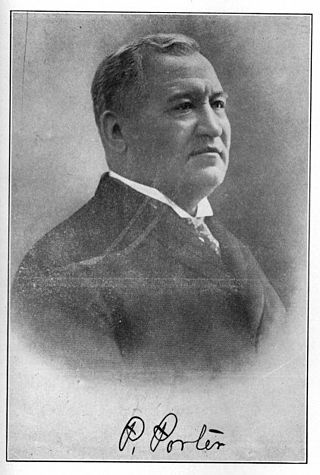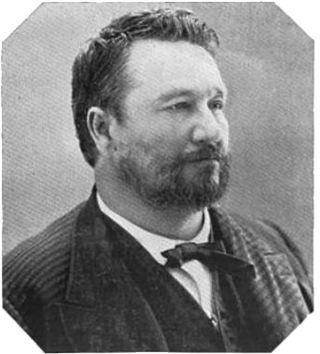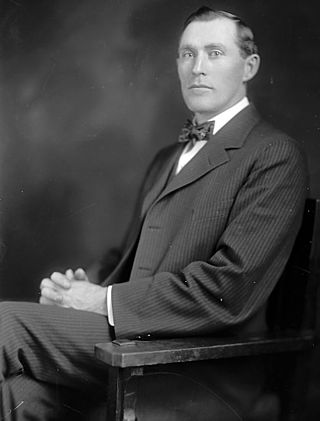Related Research Articles

Sequoyah County is a county located in the U.S. state of Oklahoma. As of the 2020 census,the population was 39,281. The county seat is Sallisaw. Sequoyah County was created in 1907 when Oklahoma became a state. It was named after Sequoyah,who created the Cherokee syllabary and its written language.

Craig County is a county in the U.S. state of Oklahoma. As of the 2020 census,the population was 14,107. Its county seat is Vinita. The county was organized in 1907,shortly before statehood,and named for Granville Craig,a prominent Cherokee farmer who lived in the Bluejacket area.

Cherokee County is a county located in the U.S. state of Oklahoma. As of the 2020 census,the population was 47,078. Its county seat is Tahlequah,which is also the capital of the Cherokee Nation.

Tahlequah is a city in Cherokee County,Oklahoma located at the foothills of the Ozark Mountains. It is part of the Green Country region of Oklahoma and was established as a capital of the 19th-century Cherokee Nation in 1839,as part of the new settlement in Indian Territory after the Cherokee Native Americans were forced west from the American Southeast on the Trail of Tears.

Pleasant Porter,was an American Indian statesman and the last elected Principal Chief of the Creek Nation,serving from 1899 until his death.

Green Country,sometimes referred to as Northeast Oklahoma,is the northeastern portion of the U.S. state of Oklahoma,which lies west of the northern half of Arkansas,the southwestern corner the way of Missouri,and south of Kansas.
Jesse Bartley Milam (1884–1949) was best known as the first Principal Chief of the Cherokee Nation appointed by a U.S. president since tribal government had been dissolved before Oklahoma Statehood in 1907. He was appointed by President Franklin D. Roosevelt in 1941,who reappointed him in 1942 and 1943;he was reappointed by President Harry S. Truman in 1948. He died while in office in 1949.

The Constitution of the State of Oklahoma is the governing document of the U.S. State of Oklahoma. Adopted in 1907,Oklahoma ratified the United States Constitution on November 16,1907,as the 46th U.S. state. At its ratification,the Oklahoma Constitution was the lengthiest governing document of any government in the U.S. All U.S. state constitutions are subject to federal judicial review;any provision can be nullified if it conflicts with the U.S. Constitution.

Oklahoma's 2nd congressional district is one of five United States congressional districts in Oklahoma and covers approximately one-fourth of the state in the east. The district borders Arkansas,Kansas,Missouri,and Texas and includes a total of 24 counties. With a Cook Partisan Voting Index rating of R+29,it is the most Republican district in Oklahoma,a state with an all-Republican congressional delegation.
Sequoyah High School is a Native American boarding school serving students in grades 7 through 12,who are members of a federally recognized Native American tribe. The school is located in Park Hill,Oklahoma,with a Tahlequah post office address,and is a Bureau of Indian Education (BIE) grant school operated by the Cherokee Nation.

Dennis Wolf Bushyhead was a leader in the Cherokee Nation after they had removed to Indian Territory. Born into the Wolf Clan,he was elected as Principal Chief,serving two terms,from 1879 to 1887.

Joel Bryan Mayes was Principal Chief of the Cherokee Nation.

Thomas Alberter Chandler was an American politician and a U.S. Representative from Oklahoma.

The 2004 United States Senate election in Oklahoma took place on November 2,2004. The election was concurrent with elections to the United States House of Representatives and the presidential election. Incumbent Senator Don Nickles decided to retire instead of seeking a fifth term. Fellow Republican Tom Coburn won the open seat.

The 2010 Oklahoma gubernatorial election was held on November 2,2010,to elect the governor of Oklahoma. Due to term limits established by the Oklahoma Constitution,incumbent Democratic governor Brad Henry couldn't seek re-election. The race had been hotly contested by both political parties,with several well-known Oklahomans announcing their candidacy up to two years before the election. This was the first time a woman challenged another woman for Governor of Oklahoma.

The 2010 United States Senate election in Oklahoma was held on November 2,2010. Incumbent Republican Senator Tom Coburn won re-election to a second term.

The Sequoyah Constitutional Convention was an American Indian-led attempt to secure statehood for Indian Territory as an Indian-controlled jurisdiction,separate from the Oklahoma Territory. The proposed state was to be called the State of Sequoyah.

Chuck Hoskin Sr. is a Cherokee and American politician and former member of the Oklahoma House of Representatives from the 6th district,which includes parts of Craig,Mayes,and Rogers counties. He served as a whip for the Democratic caucus. After leaving the House he served for four years as the Mayor of Vinita,Oklahoma. He is a citizen of the Cherokee Nation,and he served from 1995 to 2007 as a member of the Tribal Council,and in 2011 became Chief of Staff for the Principal Chief,Baker. In 2019 his son,Chuck Hoskin Jr.,was elected Principal Chief of Cherokee Nation.

Houston Benge Teehee was an American lawyer and politician from Oklahoma most known for serving as Register of the Treasury from 1915 to 1919. Teehee was from a prominent Cherokee family,with his father serving in all three branches of the Cherokee Nation's government. Before and after statehood,he was elected to positions in city government in Tahlequah,Oklahoma,between 1902 and 1910 when he was elected to the Oklahoma House of Representatives,where he would serve two terms. After serving as Register of the Treasury he returned to Oklahoma and continued to practice law,until he was appointed assistant attorney general in 1926;in 1927,he was appointed to the Oklahoma Supreme Court Commission. He retired from political office after his Commissioner term expired in 1930.

Mabel Washbourne Anderson was an American writer and educator based in Oklahoma. She wrote biographies,poetry,and fiction,mostly focused on Cherokee history and culture.
References
- 1 2 3 Agnew, Brad (November 17, 2018). "'Compromise candidate' Landrum easily won election". Tahlequah Daily Press. Retrieved 29 September 2024.
- 1 2 Agnew, Brad (November 24, 2018). "Lure of politics irresistible for a man like Landrum". Tahlequah Daily Press. Archived from the original on November 24, 2018. Retrieved 29 September 2024.
- 1 2 "1907-1912 Results" (PDF). oklahoma.gov. Oklahoma State Election Board . Retrieved 23 September 2023.
- 1 2 Agnew, Brad (December 1, 2018). "Missing funds began Landrum's fall from grace". Tahlequah Daily Press. Retrieved 29 September 2024.